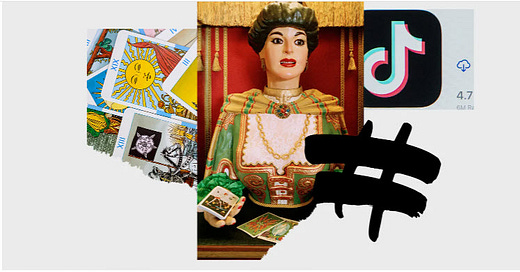TikTok, Tarot, and the Ripples of Destiny
Part 4 of this week's series on algorithms/analytics/prediction/divination . . . .
As readers of Exploration Project may have noticed, I’m not very cheerful about the Facebook/Instagram wing of social media, but I really love Twitter and YouTube. TikTok was never on my radar, one way or another—until I came across a story in Wired magazine.
This is yet another instance in which I feel woefully behind. “The Improbable Appeal of TikTok …




